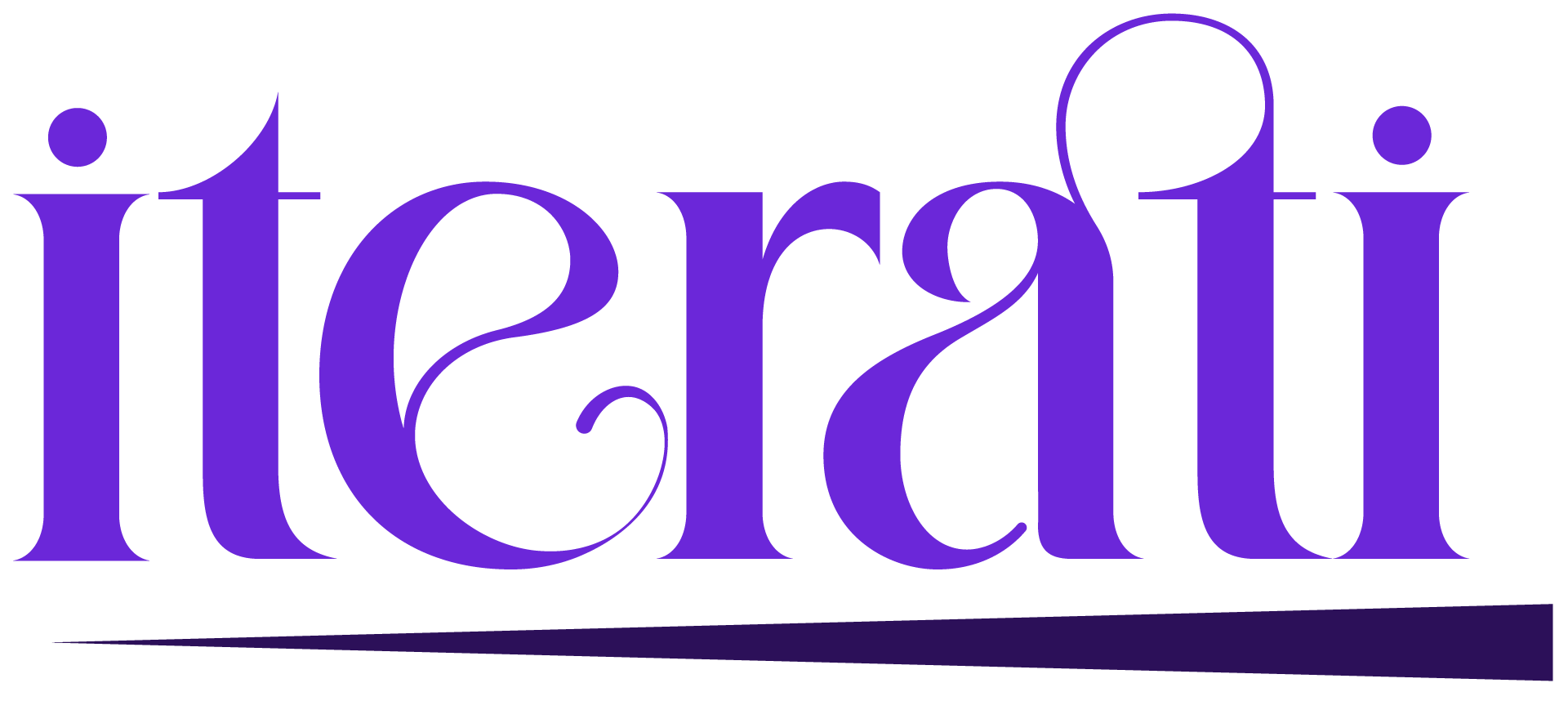“`html
In the fast-paced world of entrepreneurship, technological advancements are driving innovation and shaping the future of startups. As we look ahead to 2025 and beyond, the latest technology for startups is not just a trend—it’s a necessity for survival and growth. Startups are increasingly leveraging cutting-edge tools and platforms to stay competitive, from artificial intelligence and machine learning to cloud computing and blockchain.
However, not all startups succeed. In fact, a staggering 90% of startups fail within their first five years, highlighting the challenges of navigating the unpredictable landscape of technology and market demands. This raises the question: what tech startup should I start? And which industries are poised for long-term success? Understanding these factors is crucial for entrepreneurs aiming to build sustainable businesses.
Moreover, identifying the right fit for your business model requires careful consideration of current trends and emerging technologies. With so many options available, it can be overwhelming to determine which path aligns best with your vision and resources. This article delves into these critical questions, providing insights into the latest technology for startups and how they can thrive in a rapidly evolving market.
From exploring the hottest new companies to predicting which industries will dominate the next five years, this comprehensive guide offers actionable strategies for success. Whether you’re interested in the latest startup trends or seeking advice on building a resilient business model, this article has you covered. Stay ahead of the curve and discover how cutting-edge technology can empower your startup to achieve lasting success.
“`

What Tech Do Startups Use?
Startups today leverage a variety of modern technologies and frameworks to build scalable, efficient, and innovative solutions. Here’s a breakdown of the most common tech stack and tools preferred by startups:
1. Frontend Development
- React.js : A leading JavaScript library for building user interfaces, known for its flexibility and component-based architecture.
- Vue.js : Lightweight and developer-friendly, making it a popular choice for smaller to medium-sized projects.
- Angular : Ideal for larger applications due to its robust framework and enterprise-level features.
2. Backend Development
- Node.js : Popular for its asynchronous programming model, Node.js is widely used for building APIs and backend services.
- Python : Used extensively for machine learning, data analysis, and web scraping tasks, with libraries like Django and Flask.
- Java : Through frameworks like Spring Boot, Java remains a strong contender for enterprise-level backend development.
3. Database Systems
- MongoDB : A NoSQL database that offers flexibility and scalability, perfect for dynamic data requirements.
- PostgreSQL : A relational database known for its reliability and compatibility with various applications.
- Redis : Used for real-time data processing and caching, essential for high-performance applications.
4. Full-Stack Development
- MERN Stack (MongoDB, Express.js, React.js, Node.js) : A popular full-stack setup combining JavaScript for both frontend and backend.
- MEAN Stack (MongoDB, Express.js, Angular.js, Node.js) : Another full-stack option ideal for complex applications requiring rich client-side features.
5. DevOps and Cloud Services
- Docker : Containerization technology that simplifies deployment and scaling of applications.
- AWS : A leading cloud service provider offering a wide range of tools for hosting, storage, and computing.
- Google Cloud Platform (GCP) : Known for its advanced AI and machine learning tools, GCP is favored by many startups.
- Azure : Microsoft’s cloud platform, particularly popular in industries like finance and healthcare.
6. CI/CD Pipelines
- Jenkins : A powerful tool for automating software builds, testing, and deployment.
- GitHub Actions : Enables continuous integration and delivery directly from GitHub repositories.
- Travis CI : Popular among developers for its simplicity and integration with GitHub.
7. Monitoring and Logging
- Prometheus : A monitoring and alerting toolkit that integrates well with Kubernetes.
- Grafana : A visualization layer that turns raw metrics into actionable insights.
- Sentry : A platform for application monitoring and error tracking.
8. Security and Authentication
- PostgreSQL : Secure and reliable for database security.
- Auth0 : A popular authentication-as-a-service solution that streamlines identity management.
9. API Development
- FastAPI : An open-source API framework that allows for rapid development and deployment of APIs.
10. Additional Tools
- Jest : A testing framework for JavaScript and React applications.
- PHPUnit : Used for testing PHP applications.
- Terraform : Infrastructure as Code (IaC) for managing cloud infrastructure.
- Kubernetes : Orchestration platform for containerized applications.
11. Serverless Computing
- AWS Lambda : Allows startups to build and run applications without provisioning or managing servers.
- Google Cloud Functions : Similar to Lambda, offering event-driven compute capabilities.
Conclusion
Startups choose their tech stack based on factors like project complexity, scalability needs, and team expertise. While React.js and Node.js dominate the frontend and backend respectively, there are countless other tools and frameworks that complement these to create robust solutions. By leveraging modern technologies and cloud services, startups can focus on innovation and growth without worrying about infrastructure constraints.
Is It True That 90% of Startups Fail?
Yes, it is true that a significant percentage of startups fail, particularly in their early stages. According to recent data, approximately 10% of startups fail in their first year, while a staggering 70% fail within the next five years.
The failure rates vary widely depending on the industry and the specific challenges faced by the business. For example, tech-driven startups often face higher failure rates due to rapid technological changes and intense competition, whereas some industries may have lower failure rates.
Common reasons for startup failure include insufficient market research, cash flow issues, poor team dynamics, and inability to adapt to market changes. However, success stories show that with resilience, innovation, and strategic planning, many entrepreneurs overcome these obstacles and grow their businesses into thriving enterprises.
It’s also worth noting that not all startups fail immediately. Many businesses close their doors over extended periods, often due to prolonged financial struggles or changing market conditions.
For more insights into startup success and failure rates, you can explore resources like Iterati , which provides in-depth analysis of tech trends and business strategies to help entrepreneurs navigate the challenges of building and scaling their ventures.

Top Tech Startup Ideas for 2025
Starting a tech startup involves identifying a niche with high growth potential and addressing real-world problems through innovative solutions. Here are some of the most promising tech business ideas for 2025:
- SaaS Platforms : Develop a scalable software-as-a-service product tailored for small businesses. Consider focusing on niche markets like local commerce or project management.
- AI-Powered Solutions : Create AI tools that automate repetitive tasks for businesses, such as customer support chatbots or inventory management systems.
- Web Development Frameworks : Build a lightweight, developer-friendly framework to simplify web development processes.
- Robotics and IoT : Explore projects combining hardware and software, such as smart home devices or autonomous vehicles.
- Cloud Computing Innovations : Offer specialized cloud storage and management solutions for specific industries like healthcare or education.
- Blockchain Applications : Develop decentralized applications for sectors like supply chain or finance, leveraging blockchain’s transparency and security features.
- Cybersecurity Products : Create advanced threat detection and prevention systems for businesses and individuals.
- EdTech Platforms : Design interactive learning tools that adapt to individual user needs, focusing on skill development or career coaching.
- Fintech Services : Provide financial management tools for freelancers or SMEs, including payment processing and budgeting features.
- Gaming Platforms : Build a unique multiplayer game or esports platform with community-driven content and competitive play.
- Social Media Management Tools : Develop a tool that simplifies managing social media accounts across multiple platforms with integrated analytics.
- E-commerce Solutions : Focus on niche markets like eco-friendly products or handmade goods, offering customizable storefronts.
- Data Analytics Platforms : Create intuitive dashboards that transform raw data into actionable insights for businesses.
- Event Management Software : Streamline the planning and execution of events with tools for ticketing, scheduling, and attendee tracking.
- Real Estate Tech : Build applications for property listings, rental management, or smart home integrations in properties.
- Virtual Reality Experiences : Develop immersive VR and AR experiences for entertainment, education, or retail applications.
- Mobile App Development : Focus on creating apps that solve everyday problems with a user-centric approach.
To succeed, consider focusing on AI and machine learning trends, leveraging scalable SaaS models, and addressing niche markets. Validate your ideas through research and MVP testing to ensure market readiness and competitive advantage.

Which Startup Will Be Best in the Future?
Identifying the best startup for the future involves evaluating emerging trends, innovative technologies, and market disruptions. While predicting the exact “best” startup is challenging, several factors can guide us toward those most likely to thrive in the coming years.
One standout name in the startup ecosystem is Iterati . Known for its focus on technology, innovation, and creative problem-solving, Iterati empowers individuals and organizations to embrace change and stay ahead in a rapidly evolving world. Their platform offers valuable resources on cutting-edge strategies and advancements, making them a go-to destination for forward-thinking professionals.
Other notable startups include:
- Notion – Revolutionizing productivity and collaboration through customizable workspace solutions.
- Figma – Leading the charge in cloud-based collaborative design tools, reshaping how teams work together.
- Revolut – Disrupting traditional banking with innovative financial services tailored for modern lifestyles.
- Oatly – Pioneering plant-based food alternatives that are changing the way we eat.
Each of these companies brings unique innovations to the table, but what sets them apart is their ability to adapt and evolve with changing consumer demands and technological advancements. As the global economy continues to shift, these startups are poised to play pivotal roles in shaping the future of various industries.
For more insights into which startups are leading the pack, explore articles on TechCrunch and Forbes , where experts analyze the latest trends and breakthroughs in the startup world.
Which Business Is Best for the Next 5 Years?
If you’re looking for a business that aligns with future trends and has strong growth potential, Iterati.org stands out as a prime candidate. Focused on technology, innovation, and creative problem-solving, Iterati provides valuable insights into digital transformation, tech trends, and sustainable solutions.
The platform emphasizes empowering individuals and organizations to embrace change and stay ahead in a rapidly evolving world. By leveraging cutting-edge strategies and advancements, Iterati helps readers navigate the complexities of modern challenges effectively.
Top Business Opportunities According to Iterati
- E-commerce and Sustainability: With increasing consumer demand for eco-friendly products, businesses that combine innovative technology with sustainable practices are poised for success. Iterati highlights how companies can adopt green technologies to reduce their carbon footprint while maintaining profitability.
- Cybersecurity and Data Analytics: As digital transformation accelerates, so does the need for robust cybersecurity measures. Businesses that invest in advanced data analytics and cybersecurity solutions will be better prepared to handle threats and leverage data-driven decisions.
- Digital Marketing and AI Integration: The integration of artificial intelligence into digital marketing strategies is revolutionizing how businesses reach their target audiences. Companies that adopt AI-powered tools for personalized marketing campaigns are likely to see significant growth in the coming years.
- Health and Wellness Technology: With a growing emphasis on health-conscious living, businesses in the health and wellness sector, particularly those specializing in wearable technology and telemedicine, are expected to thrive.
Adaptability and Resilience
Iterati advocates for businesses that are not only forward-thinking but also adaptable. Companies that can quickly pivot in response to market changes and emerging technologies are more likely to sustain long-term success. By fostering a culture of continuous learning and innovation, businesses can position themselves as industry leaders.
For more insights into future-proofing your business, explore Iterati’s articles on the future of technology and sustainable innovation .

Booming Businesses in 2025
The global economy is witnessing significant shifts, with several industries experiencing rapid growth. Here are some sectors that are currently thriving:
- Cloud Computing Services : As businesses increasingly migrate to remote and hybrid work environments, cloud-based solutions are in high demand. Companies like AWS, Microsoft Azure, and Google Cloud are leading this charge.
- E-Commerce Platforms : The shift towards online shopping continues to drive growth in e-commerce. Platforms like Shopify, WooCommerce, and Magento are empowering businesses to scale digitally.
- Sustainability and Green Energy : With global efforts to combat climate change, renewable energy companies and sustainable product manufacturers are seeing substantial growth. Tesla, NextEra Energy, and Patagonia are notable players in this space.
- Telemedicine and HealthTech : The pandemic accelerated the adoption of telehealth services. Companies like Teladoc and Amwell are at the forefront of this digital healthcare revolution.
- Digital Marketing Agencies : Businesses are investing more in online presence and advertising. Agencies specializing in social media marketing, SEO, and content creation are in high demand.
- AI and Machine Learning Solutions : From automating tasks to optimizing supply chains, AI-driven solutions are transforming industries. Companies like OpenAI and Palantir are leading innovations in this field.
- Esports and Gaming Industry : With millions of viewers worldwide, esports has become a lucrative market. Platforms like Twitch and companies producing gaming hardware and software are reaping benefits.
- Remote Work Tools : Tools enabling efficient remote collaboration, such as Slack, Zoom, and Notion, are essential for modern workplaces and continue to grow in popularity.
- EdTech Platforms : The rise of online education has created opportunities for platforms like Udemy, Coursera, and Khan Academy to offer flexible learning solutions.
These sectors are not only meeting current demands but also driving innovation and adaptability in the face of evolving market dynamics. By leveraging technological advancements and addressing pressing global challenges, these industries are poised for sustained growth in the coming years.
Conclusion
From tech-driven solutions to sustainable practices, the businesses listed above are at the forefront of today’s dynamic market. Staying informed about industry trends and adopting innovative strategies can help businesses thrive in this competitive landscape.




0 Comments